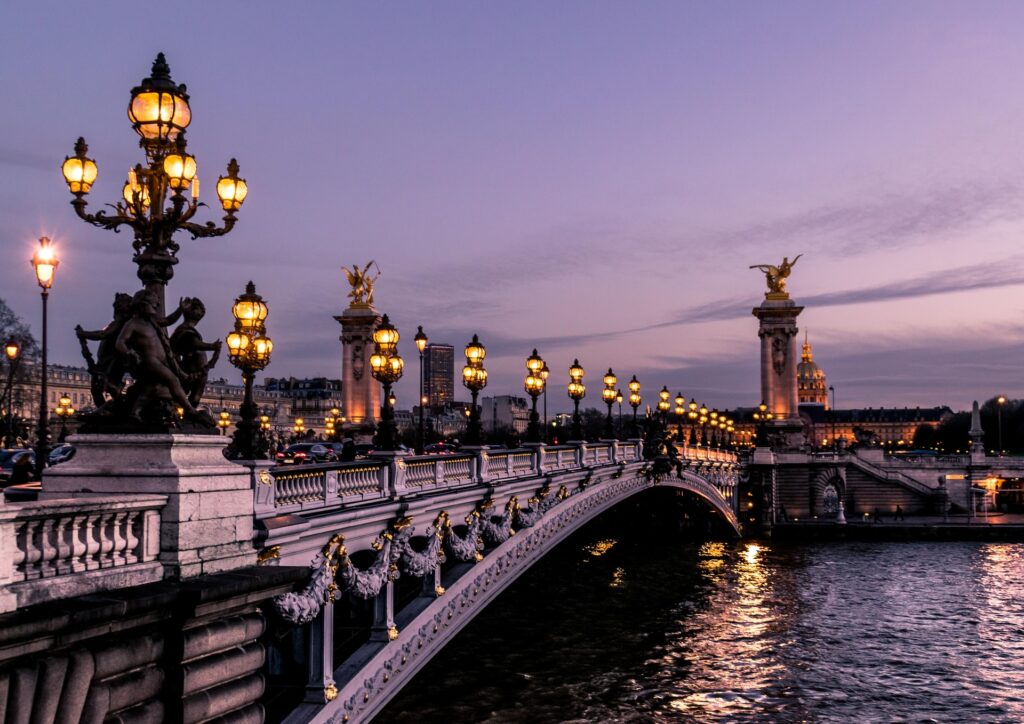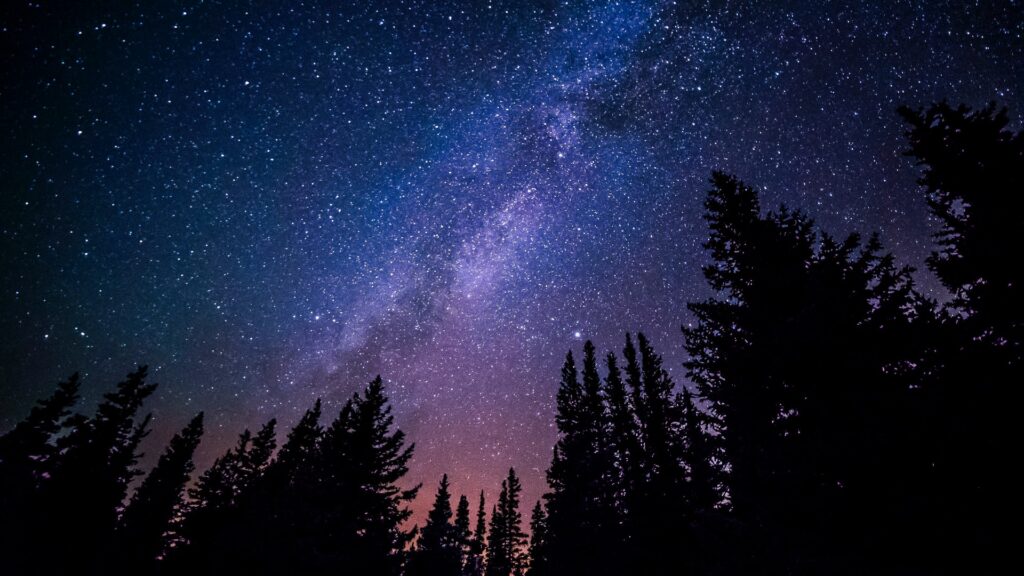We didn’t always sleep in a consolidated block of eight hours.
But with all the scientific studies around sleep, eight-hour might sound like a law carved in marble.
It’s actually not.
Most of the science around sleep focuses on modern Western patterns.
It is far from representing the variety of ways humans actually sleep.
For example, if you only study the people having three meals a day, you’ll completely miss the insights from intermittent fasting.
Why is it important to know this?
If all you know is one way of sleep, it becomes harder to sleep differently.
So when we want to use the nighttime for something other than sleep, it feels unnatural.
But it was pretty ordinary for our predecessors to take advantage of the night.
Western people themselves didn’t always sleep the way they do today.
To feel comfortable making the most of our nighttime, we need to explore other sleeping patterns.
And this is what my article is about.
First & Second Sleep

The historian Roger Ekirch said that segmented sleep was something common.
In his book At Day’s Close: Night in Times Past, he wrote:
“Until the close of the early modern era, Western Europeans on most evenings experienced two major intervals of sleep bridged by up to an hour or more of quiet wakefulness.”
These two phases of sleep had roughly the same length of time. They were commonly referred to as first and second sleep.
People used to wake up somewhere around midnight and go back to sleep later on.
Ekirch gathered more than 500 references to bi-modal sleep. The sources include medical books, diaries, literature, or anthropological accounts.
Here’s an example:
“Don Quixote followed nature, and being satisfied with his first sleep, did not solicit more. As for Sancho, he never wanted a second, for the first lasted him from night to morning.” Miguel Cervantes, Don Quixote (1615)
Interesting, no?
Even more interesting is how people used their wakefulness time.
Ekirch found a variety of uses.
Some used this time for conceiving children, having a smoke, chatting with others, or immersing themselves in solitary contemplation.
Many stayed in bed reading, writing down their midnight thoughts, praying, or meditating on their dreams.
But if sleeping by intervals was common, why don’t we sleep this way anymore?
Assault on Night-Time

In 1667, Paris became the first European city to light its street.
By the end of the century, it was followed by more than 50 other major European cities.
As street and domestic lighting spread, people had less time for their usual night activities.
They started staying up late and even venturing outside.
Darkness became a convenient time for consumption and making a profit.
To understand how the omnipresence of modern lighting is affecting us, the psychiatrist Thomas Wehr experimented on a group of people.
He deprived them of artificial light for 14 hours every day.
After a month, his subjects started exhibiting a similar sleep pattern to that of the preindustrial era.
They had two phases of 4-hour sleep, separated by 2 to 3 hours of quiet wakefulness.
With artificial light, we lost something precious. The time for resting, praying, meditating on dreams, or capturing midnight thoughts.
It seems there’s no natural way to sleep.
Depending on our culture or education, our sleep patterns change.
The monophasic and bi-modal sleep are not the only ones.
There’s another one involving napping — the polyphasic sleep.
Polyphasic Sleep and Power Nap

In The Value of Time, I mentioned Imam al-Ḥaramayn al-Juwayni (teacher of al-Ghazali) who said:
“I do not eat or sleep out of habit, I rather sleep when sleep overtakes me whether it is day or night, and I eat when I need to whatever time it is.”
Riding the waves of sleepiness at any time is not something of the past.
Dr. Claudio Stampi is a sleep researcher. He helps sailors maximize their race performance on minimal sleep.
In solo sailing, having the right amount of sleep is critical. As Stampi said:
“If you sleep too much, you don’t win. If you don’t sleep enough, you break.”
Stampi’s sailors performed with 4.5 to 5.5 hours on average per day.
His secret? Power naps.
As he said:
“The key to napping efficiently is to get in phase and ride these waves of sleepiness and alertness, so no time is wasted merely trying to get to sleep.”
Stampi breaks the sleep cycles into core sleep and short naps.
Depending on if the sailors are morning or evening people, he adapts the length of the core sleep and naps.
Morning people tend to perform better with longer core and short naps.
On the other hand, evening people seem to operate better with shorter core and longer naps.
Fasting from Straight 8-Hour Sleep

In “Are Muslims Are Meant to Be Sleep Deprived?”, I showed that not everyone follows the 8-hour sleep prescription.
Here, I want to expand more on voluntary sleep deprivation.
Recently, I came across “Theses on Sleep” by Alexey Guzey.
The author argues that sleep deprivation is no different from exercising or fasting.
Both can be painful in the short term. However, they are not harmful. They are beneficial in the long term.
But while we are tolerant of the pain of fasting or exercising, we are intolerant of sleepiness.
Even worse, we tend to confuse the actual need to sleep with the feeling of being sleepy.
We do the same thing with food when we don’t distinguish between true hunger and craving.
Guzey used an analogy to make his point:
“Never being hungry means you are probably eating too much…
Never being sleepy means you are probably sleeping too much.”
In “On Breaking the Two Desires”, Al-Ghazali made the connection between hunger and sleep, but from another angle:
“The sixth benefit [of hunger] consists in the repulsion of sleep, and acquiring the ability to remain awake for long periods. A man who eats his fill will drink abundantly, and whoever drinks abundantly will sleep abundantly also.”
For Al-Ghazali, sleepiness wasn’t something to run away from. It was a means to purify and illuminate the heart.
Final Thoughts

Treasures lie in the darkness of the night.
Many Muslims across time used the blessed hours of the night to pray, ponder, write, or study.
As I’m writing this article, I realize how much attention I pay to schedule my days; almost none to schedule my nights.
It’s time for me to experiment with different sleep combinations!
And if you want to do the same, remember to do so gradually.
Article published: March 20, 2022
Popular Articles
- 7 Lessons from Luqman that Will Make You Wise
- How to Enjoy Salat and Make it Meaningful
- Mongols Invasions: Some Forgotten Lessons to Today’s Muslims
- For or Against Vaccines? That’s Not Really the Question
- Are Muslims Meant to Be Sleep Deprived?
- Islamic Psychology: A Model Where Faith Has Its Place
- Muslims Judging Each Other: Why and How to Be Less Judgy
- The Value of Time
- 3 Tips to Unlock the Believer Mindset
- The Certainties of Muslims in Uncertain World
- Allah According to Allah: The Beauty Behind the Verse of Light
- How to Make People Change their Mind: Persuasion!
- 5 Powerful Duas from the Quran to Help You in Both Worlds
